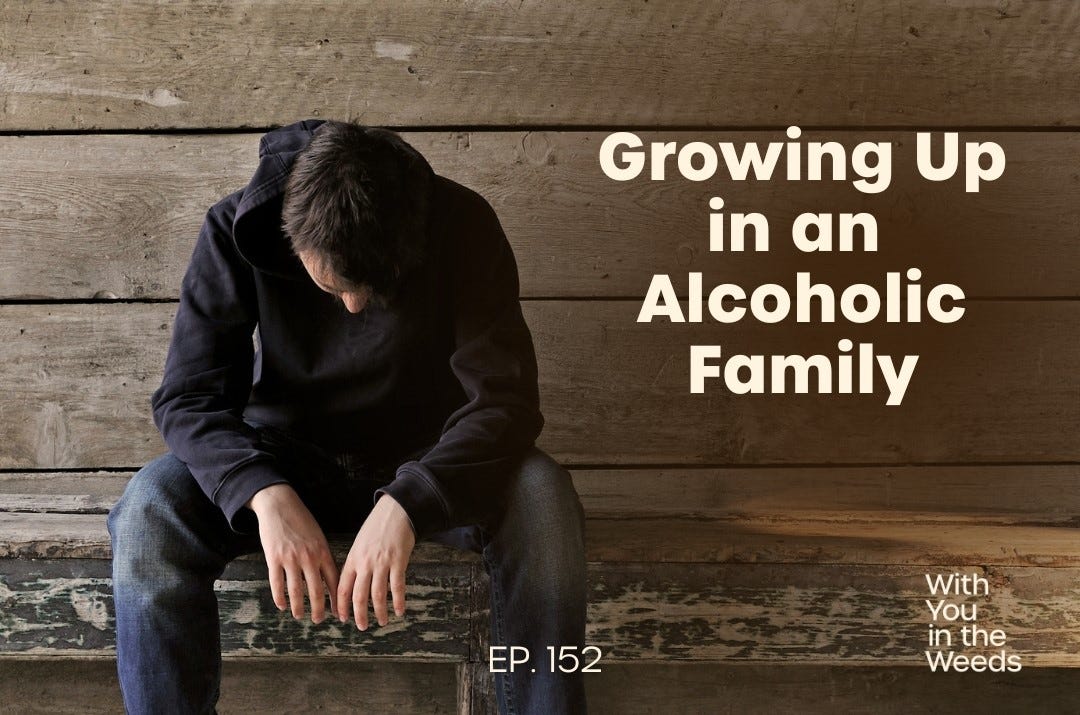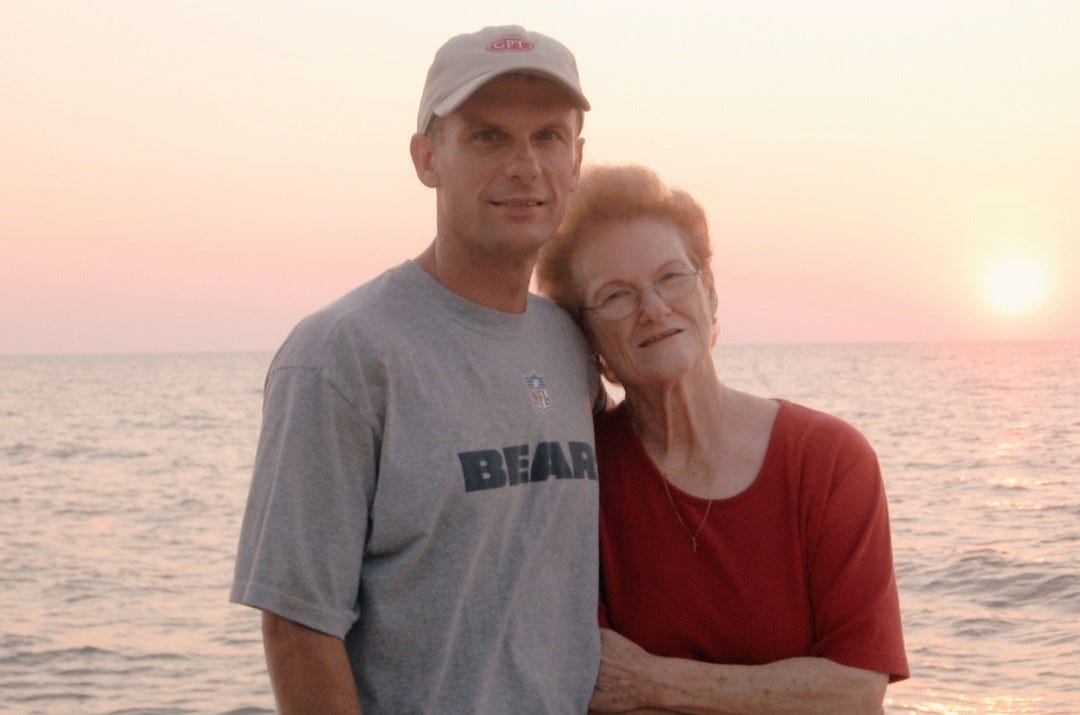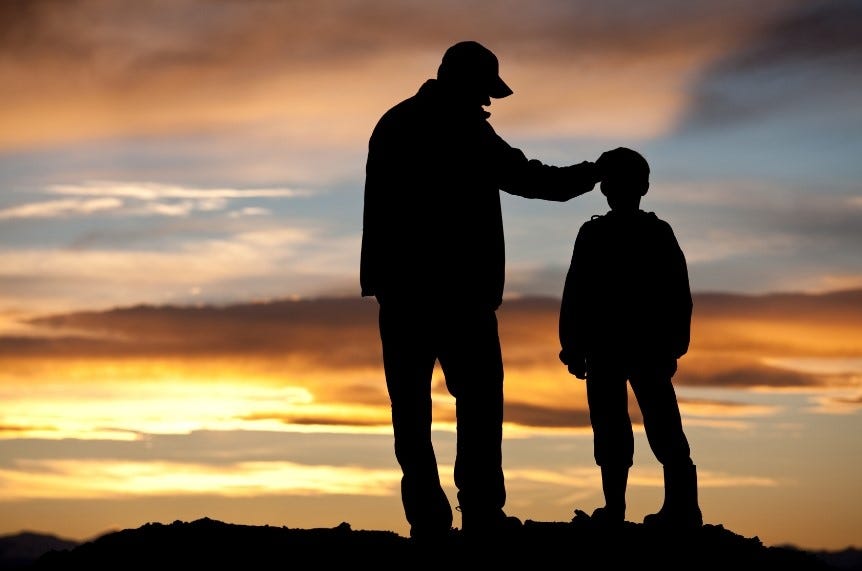Growing Up in an Alcoholic Family
When alcohol shapes your childhood
Can you grow up in an alcoholic home and still find hope? The harsh truth is that addiction doesn’t just affect the person who drinks—it affects the whole family. It can shape your mood, your memories, and deeply affect your sense of safety.
In this special episode of our ongoing series, Dealing with Your Addictions, our own WYITW co-hosts (and married couple!) Lynn and Shay sit down to talk about Shay’s story of growing up with an alcoholic parent—and how faith and grace helped him find healing.
Listen in as Shay and Lynn share about:
The shame, fear, and anxiety that children of alcoholics experience
The lasting impact of alcoholism on adult children of alcoholics
The 5 dysfunctional rules of an alcoholic family
The unconditional and transformative love of God
Even if you didn’t grow up in an alcoholic family, your family had some degree of dysfunction—every family does—and we hope that through this conversation, you are able to begin the journey of healing where shame has no hold over you.
Highlights of Lynn & Shay’s Conversation
Lynn: Hi, everyone. We are in the middle of our addiction series, and today’s episode is going to be pretty personal. I’m in the studio today with my husband, Shay, and we are going to talk about growing up in an alcoholic family. I think this episode is going to speak to a lot of people.
Shay: I hope it does. Sometimes people assume that pastors come from families that have it all together, but that’s not necessarily the case. I can attest to that. One of the things I love about the Bible is it gives the dirt on everyone. Cain kills Abel. Isaac and Rebecca each favor one son over the other. You see all these dysfunctional people we can identify with as sinners in need of grace. So it corresponds to our lives very well.
Lynn: That’s a great first point because we’re not trying to single anybody out; we all come from a dysfunctional family background to some degree or another. In our addiction series, we’re looking at the impact that alcohol, drugs, and other substances and processes have not only on people as individuals, but also on families and on the people around them.
Today, you’re going to hear personally from Shay about this topic and what his experience was like growing up in an alcoholic family. We’re starting off with a few statistics on alcohol abuse and its implications for relationships, work environments, health, and families.
Statistics say that approximately 11 million children under the age of 18 in the U.S. live with at least one parent struggling with alcohol, which represents about 1 in 6 children. If you include drugs in that, the number goes up to 1 in 4 children living with a parent or caregiver with substance abuse disorder.
Shay: According to the National Institute on Alcohol Abuse, alcohol use disorder is cited as the third most common cause of divorce for women and the eighth for men. Marriages where one partner is a heavy drinker end in divorce approximately 50% of the time compared to a 30% divorce rate for couples where both are heavy drinkers or both abstain. Alcohol use is also correlated with mental health issues, domestic violence, relational conflict, health problems, and job struggles.
Lynn: Well, Shay, I know you can relate to many of these statistics because you did grow up in an alcoholic family. Some of those statistics and factors match up with your experience. I want to shift our conversation to give you a chance to tell your story.
Shay: In a way I’d rather stick to sharing statistics and talking about what the Bible has to say about this. It’s hard to tell your own story. Let me start even before I was born. My mom was married and had three kids. So I have three half-siblings who are older than I am. Their dad, my mom’s first husband, was drinking heavily one night and got into an accident while driving. He was killed and so was a passenger in his car.
My mom eventually remarried, and she and my dad had me. When I was young, alcohol wasn’t allowed in our house. My mom was like, we’re not doing this again. However, when I was in first or second grade, I noticed some changes in my dad. I remember a particular Christmas Eve when he came home drunk from a work party. My mom threw a fit, and it ruined Christmas Eve.
So this pattern developed where I had a lot of anxiety around the holidays, worrying that my dad was going to come home drunk, because I knew it would lead to a fight between my parents. My dad didn’t drink in front of us. But over the years his drinking worsened.
He wasn’t the kind of person that could have a beer or a glass of wine and then stop—he was the kind of person that if he started drinking, he would go on a binge. It got to the point where it took over his life. My dad was a very kind man. He was never a violent drunk. But he had this unrelenting problem in his life.
Because my mom loved him, she tried to get him help. He would go to AA. He checked into a rehab program for a month or two. I remember as a kid going over there and visiting him on Sundays. I would even sit with my dad through programs for kids of alcoholics. We always hoped he would get better, but he never did.
There were times that he would be sober for 6 months, even 9 months, but he would always go back to drinking. And it started to get worse—not only did he lose job after job, but he had car accidents and got DWIs. His name was in the paper. And my mom was afraid we would lose our home because he would get sued or take us down financially. So she divorced him even though she still loved him.
A few things stick out in my mind. One is that sometimes I had to drive him home when he was drunk. Another time, when I was playing football, they had a ‘dad’s game’ where they honored the fathers and my mom stood on the sidelines with the other dads because my dad couldn’t get it together to be there. She passed away about 7 years ago but she was and is my hero.
When I was playing football, they had a ‘dad’s game’ where they honored the fathers and my mom stood on the sidelines with the other dads because my dad couldn’t get it together to be there. She passed away about 7 years ago but she was and is my hero.
He couldn’t pay child support because he had trouble holding a job or getting a job that paid well. So there were times when we didn’t have enough money for groceries. My mom was really mad at him because of that. Sometimes she would get mad at me because I still loved my dad. She apologized to me for that in her later years.
There was a stretch there that he went like four or five years without drinking and did really well and was involved in my life. But he resumed drinking and that caused his death. I was a pastor by this point. We were living in Michigan, and you were pregnant with Jack, and we came down to Missouri. We went to a Chiefs game with my dad and said goodbye to him there in the parking lot. We had a great day together.
A couple weeks later I came home from the office at the church. I walked in the house, and you told me that you got a call that my dad had drank himself to death. We had to clean out my dad’s apartment after that. That was tough. I didn’t want to expose you to that. But I appreciate you being there for me. I’ve really missed him since then.
Lynn: How did that affect you? I see the emotion in your face and I’m feeling it too.
Shay: It’s hard to talk about even though it was many years ago. I really wish he could have seen our kids—he missed out on so many things! His alcoholism affected me in many ways. One way was the embarrassment I felt. I always thought other people were thinking, “Oh, you’re the son of the town alcoholic”, and that was really embarrassing.
It also made me very independent because he wasn’t around. I had to grow up really fast. I had fear and anxiety because my mom struggled financially because he wasn’t there to help. I knew I had to work really hard and do well in school. I couldn’t fail, because I had nowhere else to go. It drove me to overperform. I was a great student. Especially once I got to college because I was paying for it myself.
Lynn: Something I’ve noticed is that it caused you to be distrustful of people to an extent, because your experience growing up was that you couldn’t count on your dad. Over the years I’ve seen your trust in me grow, but at the beginning of our relationship, there were times when I felt like I was being tested, like I had to prove that I was trustworthy.
Shay: I think that’s right. I just want to say one final thing. A few years before my dad passed away, we were talking, and he asked me, “Can I just become a believer on my deathbed?” I remember telling him that first, he doesn’t know how he’s going to die. But second, it sounded like he had a distorted view of Christianity, like following Jesus is not going to lead to life. That’s a lie from Satan. Because in Jesus, there is joy and satisfaction. We had a good conversation about that.
When we cleaned his apartment after he died, we found books that he was reading and things he was writing down about Christianity. So I do hope to see my dad in heaven someday, and I would love to have a relationship with him in all of the fullness of the person he could have been without alcohol.
Lynn: For some people caught in addiction, heaven is going to be the place where they are finally free of that. But many people can have freedom right now. That’s one of the main reasons we’re doing this series on addiction. There’s hope and opportunity to break out of destructive cycles.
Shay, thank you so much for sharing your story. Many people are going to be able to relate to what you’re saying. Let’s move on from that because this is all tied together. We want to share “The 5 Rules of an Alcoholic Family”.
Growing up in an alcoholic family means that there are commonly shared rules that govern behavior, emotions, and relationships. These unspoken agreements maintain the family’s fragile balance, often at the cost of authentic relationships. These rules organize the family around addiction. It’s what keeps the dysfunctional cycle, even generational cycle, in motion.
The 5 rules we’re going to talk about briefly are Don’t Trust, Don’t Talk, Don’t Feel, Play a Role, and Deny the Impact.
Shay: Just as you read them, I can see all of those in my family.
The 5 Rules of an Alcoholic Family
Don’t Trust: Relationships thrive on predictability and reliability because those create security and stability. But when you have an addicted family member, trust is eroded because an alcoholic parent is not consistently available to support their child or spouse. They may be physically present but emotionally absent. If they are physically absent, there is a mental and emotional toll on the family because of the addiction.
Don’t Talk: To keep the peace and protect the family image, you avoid discussing alcoholic behavior, which stifles honest communication and buries emotional pain. You’re trained to hide the chaos, drinking, financial strain, and emotional turmoil from everybody on the outside. There are many secrets in an alcoholic family, and no one knows the whole truth because everybody’s embarrassed and ashamed of what’s going on.
Don’t Feel: Family members learn to suppress their true feelings. You can’t be honest about how you’re feeling because it will be met with defensiveness, denial, or anger. Over time, this emotional shutdown leads to disconnection between family members and an inability to process feelings in healthy ways.
Play a Role: Each person around the addict adapts a role in order to survive the chaos: the enabler who covers and cleans up, the hero who tries to fix everything, the scapegoat who acts out to divert attention from the addict, and the lost child who withdraws and isolates from the family to avoid further pain.
Deny the Impact: You learn to make excuses and pretend things aren’t as bad as they are. You have unhealed wounds because you can’t acknowledge what happened. And the impact shows up later in life. Many Adult Children of Alcoholics (ACOAs) struggle with trust because promises were constantly broken. They become people-pleasers or perfectionists. They may turn to addiction as a way to escape pain, because it’s the coping mechanism that they saw modeled growing up.
Lynn: These are so helpful! In addition to understanding the 5 Rules, what are some key takeaways from your own life as we wrap up, Shay?
Shay: If you’re an adult child of an alcoholic, name the unspoken rules from your childhood. Counselors say that naming something takes away its power. Break the silence and don’t be afraid to share your story. Let God work in your life to heal those broken places. Let God define you in Jesus instead of letting your past define you.
If you feel false shame, think of Romans 8:1, “There is no condemnation for those who are in Christ Jesus.” All of your shame was taken a Jesus at the cross. Rest in that and find healing in God’s grace. For me, growing up essentially without a father, I’ve also found peace leaning into the fatherhood of God.
Lynn: It’s such a hopeful ending here as we conclude this episode because I also know a lot of parents feel guilty if there was addiction or divorce in their family and wonder if their kids can possibly be okay. When I hear your story of how you grew up and where you are today, it’s a testimony of God’s grace.
Shay, I love you, and I am proud of you, and I appreciate you sharing your story today. To our listeners, stay with us in this Dealing with Your Addictions series, because we have a lot more to talk about.




